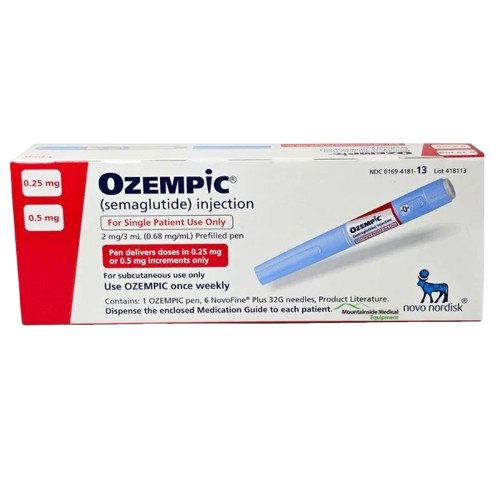Facing surgery is stressful enough without the confusion of how to manage your medications. If you’re searching for “when to restart Ozempic after surgery,” you’re looking for a clear, safe, and authoritative plan. The most critical thing to know is that there is no single answer—the timeline depends entirely on your specific procedure and recovery.
This guide will not give you a generic guess. Instead, it will provide you with the medically-informed framework and crucial questions you need to navigate this process safely with your healthcare team. Your safety from complications like aspiration pneumonia is the non-negotiable priority.
The Non-Negotiable First Step: When to STOP Ozempic Before Surgery
The “restart” plan begins before you ever go under anesthesia. The primary reason for pausing Ozempic (semaglutide) is its effect of slowing down digestion, a condition known as gastroparesis. Even if you feel fine, having food or liquid in your stomach during anesthesia can lead to a life-threatening complication: aspiration pneumonia.
Current Medical Guidelines (as per ASA, Anesthesiology Society Recommendations):
- You should typically stop your Ozempic injections at least one week prior to your scheduled surgery.
This is the baseline your surgical team will likely instruct. However, you must confirm the exact timeline with both your surgeon and your anesthesiologist. It may vary based on your dose and specific health profile.
The Golden Rule for Restarting Ozempic After Surgery
The universal rule for restarting any medication after a procedure is simple in principle but requires individualization:
You can restart Ozempic once you have fully recovered from the immediate effects of surgery and are back to your normal, regular diet without nausea or vomiting, and with your doctor’s explicit approval.
This means you are:
- Tolerating solid foods without issue.
- Fully hydrated.
- No longer requiring strong opioid pain medications that can also slow digestion.
- Cleared by your surgical team.
A Practical Timeline: When to Restart Based on Your Surgery Type
Use this table as a discussion guide with your doctors, not as a definitive prescription.
| Surgery Type & Recovery | Typical Restart Timeline | Key Considerations & Precautions |
|---|---|---|
| Minor Outpatient Surgery (e.g., cataract, minor skin procedure) | Often within 3-7 days. | This is the fastest possible restart. You must be home, eating and drinking normally, and off strong pain meds. |
| Standard Inpatient Surgery (e.g., gallbladder, knee replacement, hernia) | Typically 1-2 weeks post-op. | This is the most common scenario. Wait until you are discharged, have follow-up with your surgeon, and are confidently eating a normal diet. |
| Major GI / Bariatric Surgery (e.g., gastric bypass, bowel resection) | Can be 2-4 weeks or longer. | Your surgical team will have a very specific, slow diet progression plan. Do not restart until they explicitly authorize it, often at your first post-op follow-up. |
The 3 Critical Questions to Ask Your Healthcare Team
Walk into your pre-operative appointments empowered. You must get clear answers to these questions:
- “Based on my specific surgery and dose of Ozempic, how many days before the procedure should I take my last injection?”
- “What are the specific milestones I need to hit with my diet and recovery before it is safe for me to restart Ozempic?”
- “Who gives the final ‘go-ahead’ to restart: you (the surgeon), my endocrinologist, or my primary care doctor?” (Preventing communication gaps is essential).

What to Expect When You Restart Ozempic
Your body’s tolerance may have changed during the break.
- Side Effect Re-set: Be prepared that you may experience some of the initial start-up side effects (mild nausea, constipation) as your body re-acclimates to the medication.
- Hydration is Key: Focus on sipping water and eating bland, easy-to-digest foods for the first few days after your first post-op injection.
- Blood Sugar Monitoring: If you are taking Ozempic for type 2 diabetes, monitor your blood glucose levels closely as you restart, as your needs may have shifted temporarily due to the stress of surgery.
The Final, Most Important Step
The question of “when to restart Ozempic after surgery” is one that you must answer in close collaboration with your entire medical team. The safest path is always to be the proactive, informed patient who confirms and reconfirms the plan.
Do not let any single article, including this one, override the specific instructions from the doctors managing your care. Use this guide to ask the right questions and ensure a safe, coordinated recovery.